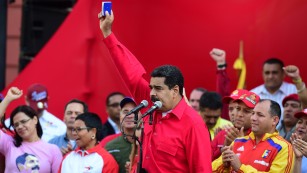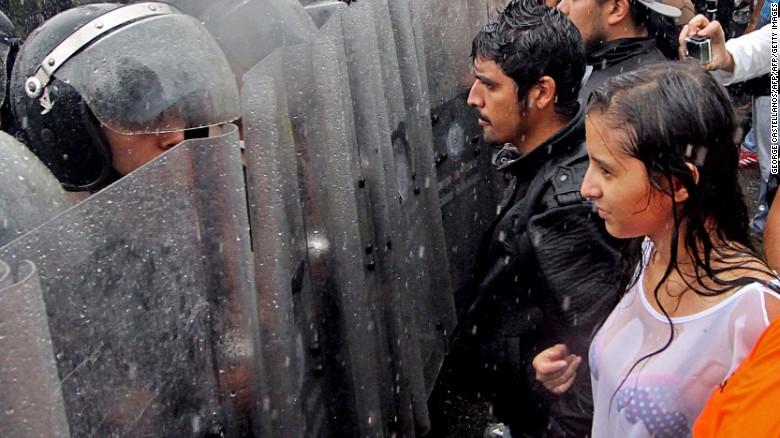Venezuela: Protesters vow turning point against President Maduro
Pope Francis wants them to talk. But the noisy disagreements between Venezuelan President Nicolas Maduro and his political foes may drown out any dialogue.
"The time has come to defend Venezuela's constitution," opposition leader Henrique Capriles said at a news conference called ahead of planned protests Wednesday that organizers say will be so big that they will be a turning point.
READ: What went wrong in Venezuela?
Anger and tensions between the government and the opposition are sky high after Venezuela's National Electoral Council halted a drive to hold a recall referendum on Maduro. Each side accuses the other of staging a coup in the country, which is in the midst of economic and political strife.
The National Assembly voted Tuesday to ask Maduro to appear for questioning next week so it can determine whether to recommend he be removed from office by the nation's Supreme Court. The Assembly is controlled by opposition lawmakers, while much of the courts are Maduro supporters.
Maduro returned to Venezuela ahead of schedule Tuesday, after meeting with Francis, who offered a mediator between the two sides. Maduro tweeted, "I'm already landing in our beloved country, full of excitement and with the whole world's blessings for all of Venezuela ... we will continue our pursuit for victory."
At a rally, Maduro told a group of sympathizers he spoke with the Pope personally, adding, "When I sat down with the Pope I didn't take a seat, the people of Venezuela did."
Session halted after brawl
The fate of Maduro has been full of twists and turns. Opponents launched the drive to have him recalled, but have been stymied.
- They collected what appeared to be enough signatures to proceed to the next step of the recall process
- But federal courts halted the process, saying there were multiple cases of voter identity fraud
- On Sunday, opposition legislators approved a measure that declared "there had been a breakdown of constitutional order and a continued state of coup led from the highest level of government by President Nicolas Maduro."
- But then, government supporter stormed the assembly building on Sunday afternoon, opposition legislators told CNN. They stole cell phones from opposition lawmakers, threw punches and vandalized the building, before being persuaded to leave.

Venezuelan President Nicolas Maduro delivers a speech to supporters in Caracas on Tuesday, October 25.
The movement against Maduro, who succeeded the charismatic firebrand President Hugo Chavez, has grown as Venezuela continues to battle an economic crisis and massive shortages of food and medicine, as well as factory shutdowns and blackouts. Maduro holds firm that efforts to remove him from office won't succeed, while his opponents say he has violated the constitution.
As well as the legislative action, protesters have taken to the streets. Last month, demonstrators wore white and waved flags as they packed the streets of the capital, Caracas, to blame Maduro and his government for the country's woes.
Venezuelan society crumbles
- How Venezuela became the world's worst economy
- What it's like to be hungry in Caracas
- Morgue turns into 'rotten freezer'
- I flew to US to buy toilet paper
- Hospitals run out of supplies
- Newborns in cardboard boxes
- Abandoned pets of Venezuela's crisis
Opposition leaders dubbed the demonstration "The Takeover of Caracas" and said more than 1 million people took part. The state-run news agency AVN said there were about 30,000 people.
Timing is key. If there's a recall vote to oust Maduro this year, there would be new elections. But if the vote happens in 2017, the vice president would take the reins.
If there's no recall vote, Maduro's presidential term is set to end in 2019.
News Courtesy: www.cnn.com











